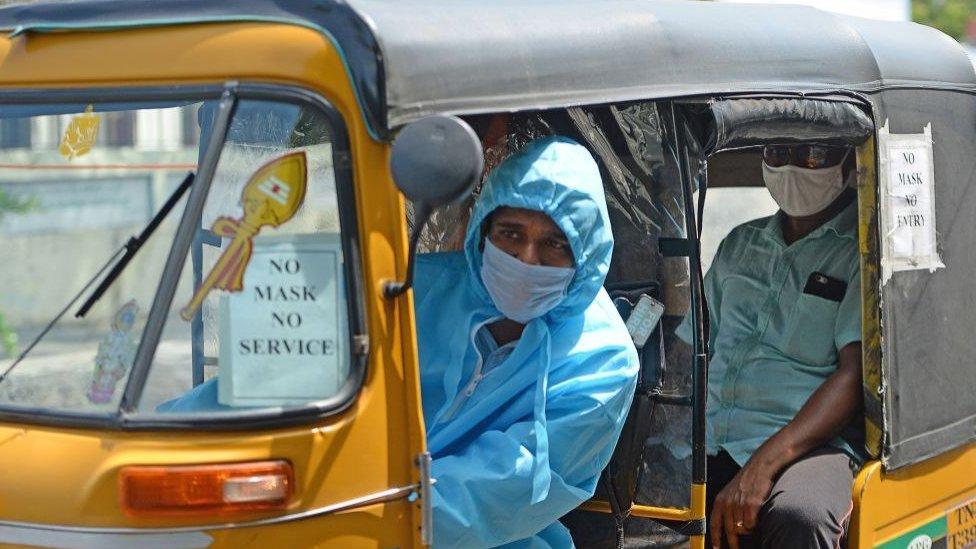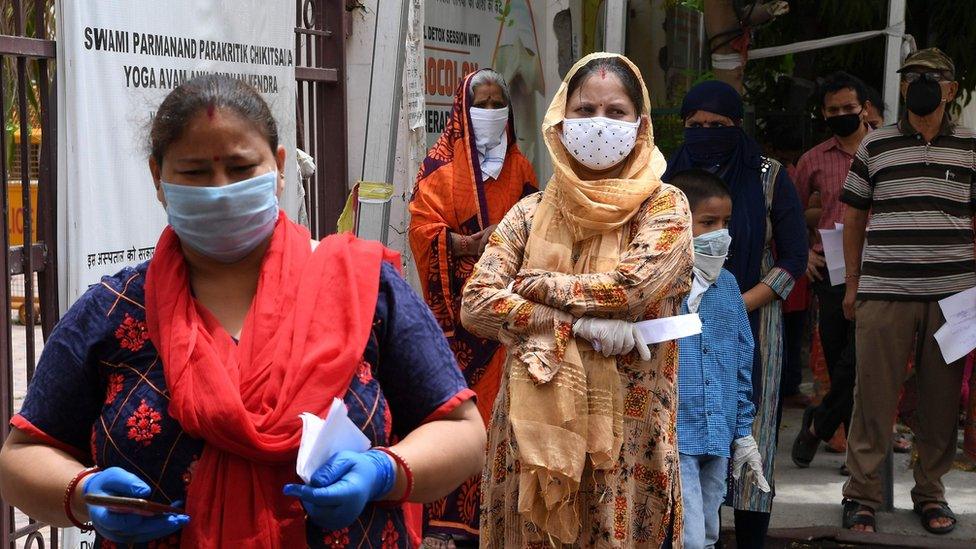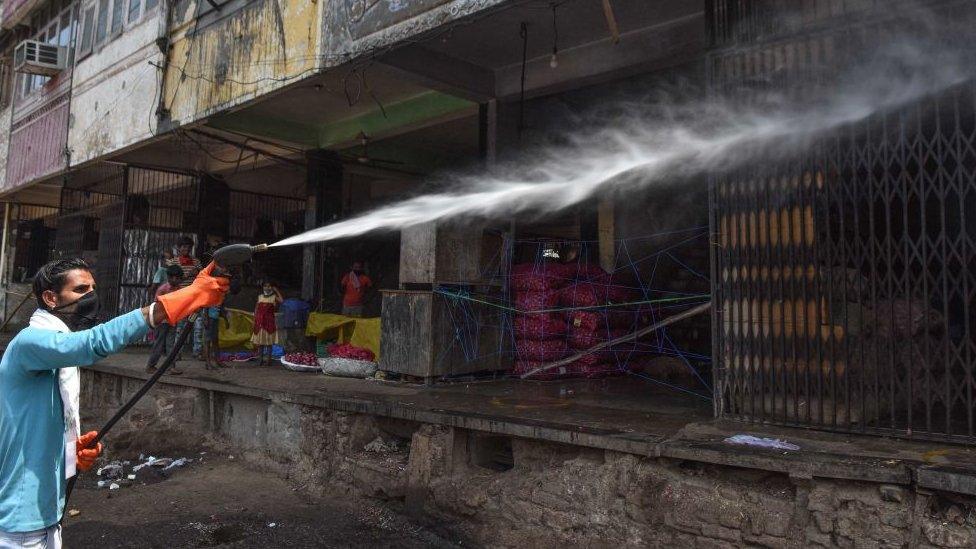Coronavirus: India's Chennai back in lockdown as cases spike
- Published

Chennai accounts for the majority of cases in Tamil Nadu
Indian officials have re-imposed a lockdown in the southern city of Chennai (formerly Madras) and three neighbouring districts.
Only essential services and neighbourhood grocery shops will be permitted to function under the 12-day lockdown, set to end on 30 June.
Chennai is India's sixth-largest city and the capital of Tamil Nadu state.
It has more than 37,000 of Tamil Nadu's confirmed 50,000 infections, making it one of India's largest hotspots.
With just over 600 deaths in total, the state has a relatively low mortality rate - but its death toll is currently being reviewed after reports suggested that at least 200 deaths in Chennai were not included , externalin the official tally.
It is the only city to re-impose a lockdown to curb the rise in infections.
Thousands left days before the lockdown was set to begin. Local reports said vehicle check posts to exit the city were “clogged”, external with cars, and the Hindu newspaper reported that Chennai airport witnessed double the usual crowd, external in the past few days.
India now has the fourth-highest caseload in the world, with more than 350,000 confirmed cases of the disease. Daily reports of infections are spiking, with Tamil Nadu among the worst-affected states.
Earlier this month, however, the country started to ease out of one of the world’s harshest lockdowns, despite cases spiking across.
It went into a strict lockdown in March when the confirmed caseload was in the hundreds. Official data suggests the decision prevented the loss of between 37,000 and 78,000 lives.
However the cost to the economy has been high and pictures of millions of informal workers leaving cities for their rural villages after losing their jobs - some of them on foot - shocked the country.
What’s allowed under the new lockdown?
Grocery stores and petrol stations will be open, but only for limited hours during the day and with physical distancing norms in place.
Taxis, auto-rickshaws and private vehicles will not be allowed to operate, except in emergencies.
“The public are advised to buy essential supplies without using their vehicles and from stores that are located within 2km (one mile) from their residences,” chief minister Edapaddi K Palaniswamy said earlier this week.
Other things include:
Food delivery and takeaways are permitted though restaurants will remain closed to the public
State government offices and banks will be open, but with only 33% of staff in office
Essential services like hospitals, labs and pharmacies will continue to function as usual
- Published11 June 2020

- Published15 June 2020
- Published16 May 2020
